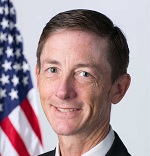Here's Why Bruce Reed Is Now One of the Most Powerful People in Education
/
In his two months as the Broad Education Foundation's new president, Bruce Reed has spent much of his time with Eli Broad, learning about Broad's vision for education reform and examining the work the foundation has supported in years past. It's been a quiet transition. But don't be fooled; this may well be the lull before a major new spending spree by Broad and a hugely influential role for Reed in U.S. education policy.
The Broad Education Foundation approaches school reform at the system level, funding projects that design new schools and education systems. That includes staunch support of charter schools, but also big investments in bolstering the management skills of public education leaders. The foundation favors reforms that are designed to reduce what Eli Broad sees as bureaucratic barriers that interfere with teaching and learning. The foundation also supports value-added teacher appraisal models. And there's more: the foundation gives generous scholarships to high schoolers who graduate from urban school districts that have made big improvements. And it has a initiative to connect schools to new digital resources for "personalized learning."
That's a big agenda, and one with serious money behind it: Forbes' most recent billionaire list estimates Eli Broad's wealth at $6.9 billion. After the Gates Foundation and the Walton Family Foundation, Broad has been the biggest spending education philanthropist of recent years.
Now he seems poised to rachet things up further. Eli Broad has always favored what he describes as a national education system. "Rather than having 14,000 school boards across America, it would get governors involved, big city mayors involved, and it would have a longer school day and a longer school year," is how Broad described his idea of the perfect education system to California radio station KPCC.
In Bruce Reed, the 80-year-old Broad may have found the perfect man to expand the foundation's national scope and impact. Reed has the knowledge and political clout to ramp things up. He's been chief of staff for Vice President Biden, a speech writer for former Vice President Gore, and a top policy expert in the Clinton administration.
Ideologically, Reed looks like a perfect fit for Broad, whose political affiliations lean Democratic but who is an ardent foe of teachers unions, a traditionally reliable Democratic constituency. Reed's political resume includes a stint as CEO of the Democratic Leadership Council (DLC), the centrist Democratic organization whose founders included Bill Clinton. In its quest to remake domestic policy, the DLC supported some forms of school choice, such as charter schools, and didn't hesitate to ruffle the feathers of organized labor, including teachers' groups.
If the Broad Education Foundation does rachet up its work nationally under Reed, its first president, one question is whether it will also begin moving a lot more money out the door. In 2012, the Eli and Edythe Broad Foundation gave out a total of $153 million for all its activities (which also includes giving for medical research and the arts), putting it among the top 35 foundations by giving that year. Yet at this rate, the Broads—who signed the giving pledge—won't make much of a dent in giving away even half their fortune while they're still alive.
That's why bigger giving for education—maybe much bigger—seems highly likely. Perhaps that's how Broad convinced Bruce Reed to move across the country to take a foundation job, when he surely could have snagged more prestigious positions.
If Broad really opens the floodgates, it could mean major opportunities for groups that have already gotten Broad money, but also for new organizations and school districts. If you're an educator who's yet to get Broad funds, now's a good time to suddenly remember that you and Bruce Reed knew each other in college. Or whatever. Reed is likely to become one of the powerful figures in U.S. education philanthropy starting, well, now.








